
Role of Phlebotomists During The Pandemic and Addressing Recent Blood Shortages
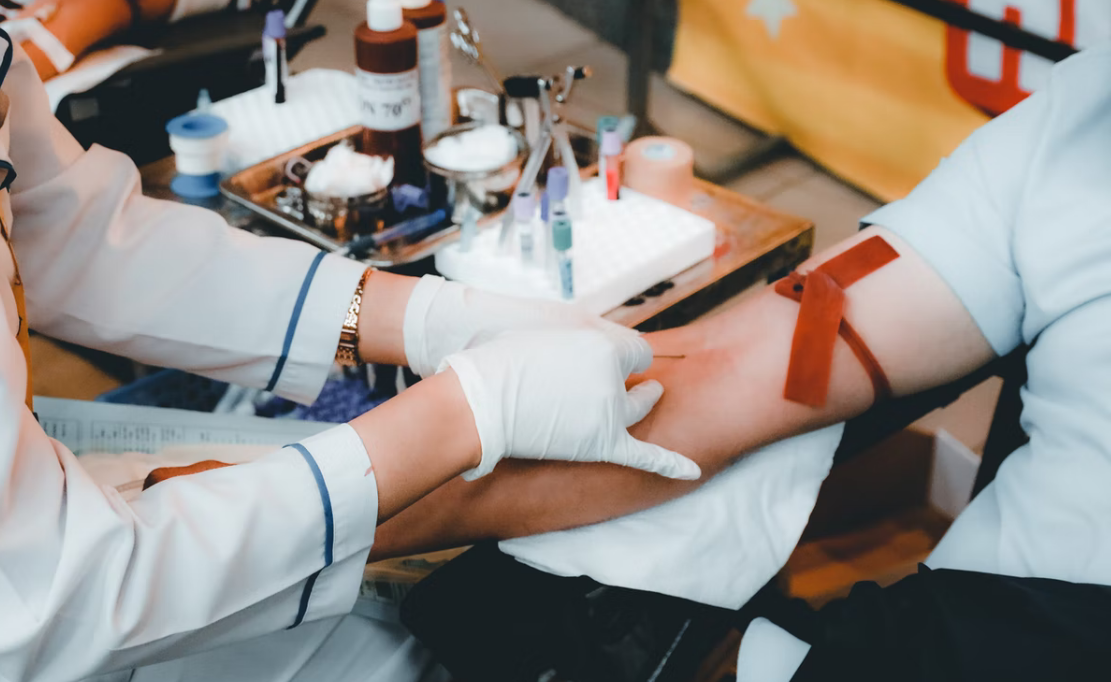
The novel COVID-19 pandemic has been a devastating global catastrophe, causing immeasurable damage to the world’s resources. Ever since the pandemic’s onset, healthcare service providers, first responders, medical lab operators, and mobile phlebotomists have been on their toes to prevent the disease from spreading by delivering timely medical intervention.
However, the adverse effects of the pandemic have grown over time with the introduction of new and stronger variants. The most recent catastrophe was experienced in the United States when the Red Cross declared a national emergency for the shortage of blood supply to make essential operational treatments. This blood crisis call was the first time the United States faced a blood shortage at the national level.
The Impact of COVID-19
It’s safe to assume that COVID-19 was a global calamity that the world wasn’t prepared for. The pandemic infiltrated and damaged almost every industry and healthcare sector across the globe. The pandemic also saw a huge number of deaths.
Physical Health Impact
COVID-19 has infected over 482 million people worldwide ever. About 43% of the country’s population has had COVID-19 at least once in these few years. The pandemic has caused over 900,000 people to lose their lives.
The nationwide state of emergency had caused the medical system to crumble, preventing people with other diseases or natural medical conditions from getting quality healthcare service. Mobile lab services have been beneficial in this regard as they made sure people received healthcare services without having them step out of their house into a potentially contaminated space.
Mental Health Impact
While there were physical health effects, COVID-19 was also responsible for depleting the general public’s mental health. Many people faced certain challenges that were, at times, stressful and overwhelming. The worldwide despair caused a strong emotional reaction in adults and children.
Social distancing was deemed necessary to ensure public health safety and mitigate the disease’s spread. But the distancing and the occasional isolations made people feel lonely, which aided in increasing mental issues like anxiety, depression, and stress.
Social Impact
The COVID-19 spread was devastating for all sections of the population, but it is more harmful to individuals living in the vulnerable communities of society. It continues to afflict populations such as those living in poverty, the elderly, disabled people, and youths.
Early research suggests that the virus’s health and financial consequences are carried largely by the poor. Homeless persons, for example, are particularly vulnerable to the disease because they may not be able to find a secure place to stay for scheduling timely Laboratory Testing Services VA for identification and treatment.
Business Impact
COVID-19 has severely impacted small and large-scale businesses. According to statistics, the virus caused about 43% of small businesses to run out of resources and fail. Lockdowns had an adverse effect on the manufacturing sector, causing worldwide economic turmoil.
About 15% of the employees across the country were laid off, increasing the country’s overall unemployment rate. This increase in unemployment has affected people’s medical access, with more people now abstaining from essential blood testing and other medical treatments.
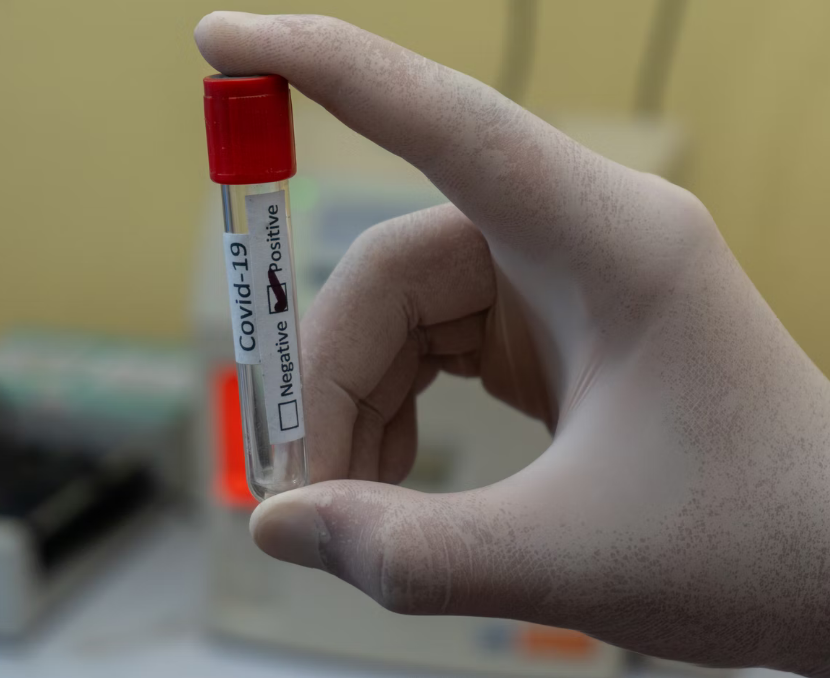
The Recent Blood Shortage
The COVID-19 pandemic and its range of variants have impacted several critical distribution networks in healthcare. Throughout the pandemic, essential medical supplies faced a global shortage. These healthcare supplies include prescription medications and necessary equipment, including physician safety suits, oxygen tanks, and ventilators.
Now, the supply and availability of blood products have taken the country by storm as the biggest supplier of blood, the Red Cross, has established a national emergency, calling it one of the biggest droughts in American history.
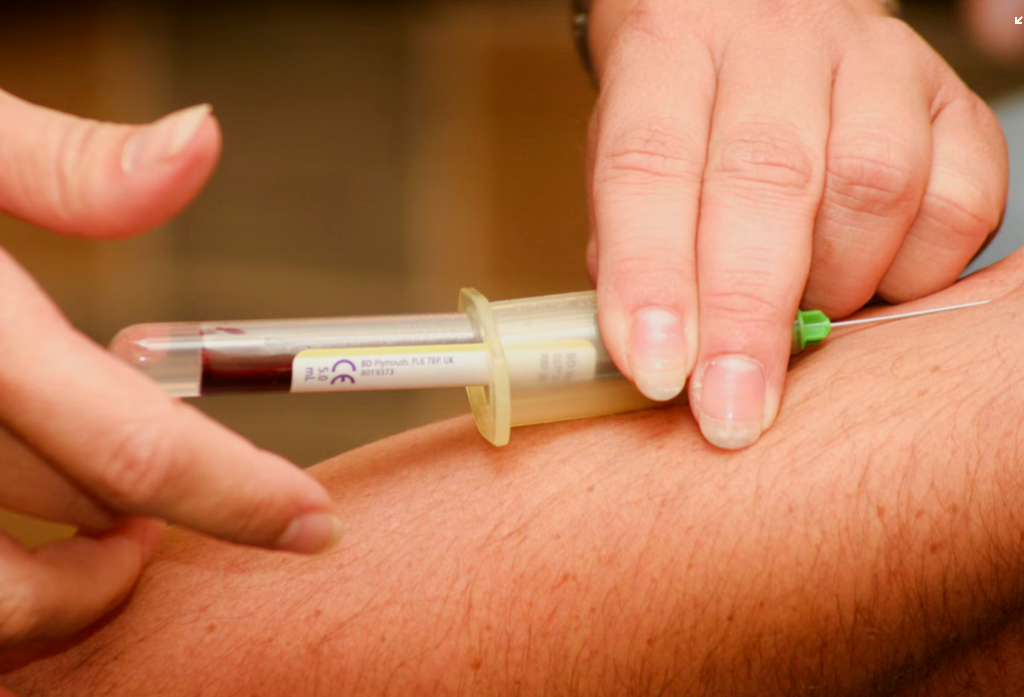
Causes of the Blood Shortage
The present blood product deficit has several reasons, including a lack of donor facilities, a loss of personnel at blood clinics, and a decrease of donors owing to COVID-19 safety limits.
Furthermore, it has been documented that the country has faced a decline in the ratio of donors due to younger generations’ declining involvement. Traditional blood drive locations, such as workplaces or schools, have been ineffective as more students and employees work remotely.
The 50 percent decline in supply was offset in the epidemic’s initial days, driven by a lower need for blood supplies due to limits on elective surgeries. However, once the country recovered and medical services were resumed, there was an instant increase in blood demand.
Following are some of the causes of the blood shortage in detail:
Low Rate of Blood Donors
Only 37% of the total population in the country are physically fit to donate blood. Traditionally, only 10% of these people donated blood frequently. The Red Cross has indicated a 10% decrease in blood donors countrywide. The ratio saw a considerable decrease post-pandemic due to people’s abstinence from engaging with medical institutions while the virus still prevails.
Lack of Donor Facilities
There aren’t enough blood donation facilities in the US. The Red Cross is responsible for supplying about 40% of the total blood consumption in the country. In contrast, other small-scale state facilities aren’t proving to be enough to satisfy the general blood supply requirements.
Safety standards enforcement in recent years has resulted in a large number of facilities shutting down, increasing the deficit of blood supply in the country.
Strict Donor Laws
The number of people eligible for blood donations is way below 50%. A part of the reason is the strict and rigid guidelines for blood donors. Following are the guidelines for the eligibility of blood donation in the USA:
- Must be in good health
- Must weigh above 110 pounds
- At least 16 years of age
- Must NOT have tested positive for blood diseases including Hepatitis C or Hepatitis B.
- Must NOT have lived or involved in sexual intercourse with someone carrying the above-mentioned blood diseases
- Must NOT have had an ink tattoo in the past three months
- A male blood donor would NOT be eligible if involved in sexual intercourse with another man in the past three months
- Must NOT have traveled in the past three months.
Unfortunately, a small fraction of the population in the United States comply with the above guidelines and become eligible for blood donation.
Less Number of Phlebotomists
The country has lost many nurses, doctors, and phlebotomists in the aftermath of the novel virus. It’s been estimated that every 1 in 5 healthcare workers has left their jobs. Many healthcare professionals took this decision due to burnout and to protect their families from the transmission of the virus.
Mobile expert phlebotomists VA are still the preferred group of medical care providers in the country as they allow people to receive medical attention within their households. However, people are skeptical about letting medical personnel in their home premises, particularly for the virus they may carry.
However, this is not the case. The Phlebotomists on Wheels consider hygiene and safety the primary precaution when going in a house for lab testing, specimen collection, or any other relevant medical task.
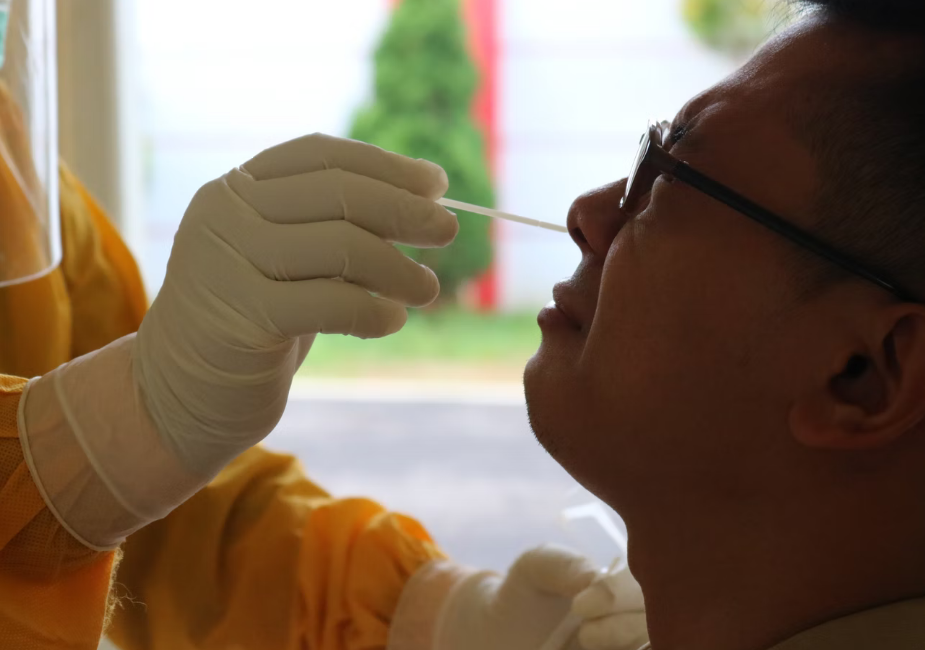
Role of Phlebotomists During Pandemic
Phlebotomists have always been an essential part of the medical care system worldwide. They stand at the initial stage of diagnosis and treatment as they perform blood draw at home services MD, specimen collection, and other lab testing tasks to help doctors with effective diagnosis.
The phlebotomists had an impactful role even during the era of the pandemic. The traditional and mobile phlebotomists ensured that quality medical service was readily available for everyone, even in times of despair.
Following are some of the ways how phlebotomists proved to be an essential part of the healthcare system during the pandemic:
COVID-19 Testing
Rapid COVID-19 testing and early identification were crucial for reducing the impact of the virus and helping people isolate to mitigate the outspread. Phlebotomists were brave in the process and put their lives on the line to serve humanity.
COVID-19 testing was a tough procedure at first when people were unaware of how it worked. Their role in reassuring the people and guiding them about the safety precautions will be long remembered.
Console the Patients
One of the prime roles of a phlebotomist is communication and patient reassurance. It’s critical to realize that phlebotomy’s purpose in medicine is to support the testing and medical teams.
Phlebotomists, during the pandemic, were successful in developing a consistent approach while dealing with other medical personnel, particularly patients who were typically fearful of having their blood drawn or participating in the testing.
Ensuring Safety
While wearing masks was deemed essential for safety in the COVID period, people were skeptical about inviting this new change into their lives. Phlebotomists started practicing the safety measures to display the essential safety gear required to counter the virus.
They also ensured hygiene and SOPs with anyone that came into the lab for testing. Mobile phlebotomists offering blood draw at home services VA made sure they had their gear on and communicated the importance of safety gear during social interaction.
Collect and Deliver Samples
After a patient’s samples are obtained through the lab or in home phlebotomy services VA, they must be appropriately labeled with the patient’s identity information, the time the sample was taken, and any essential information about the testing method or the COVID tests being done on the patient.
Phlebotomists also take the specimens to the proper laboratory for further testing. This testing has proven to be crucial for the identification of variants and harmful pathogens as well as in the creation of the antibodies.
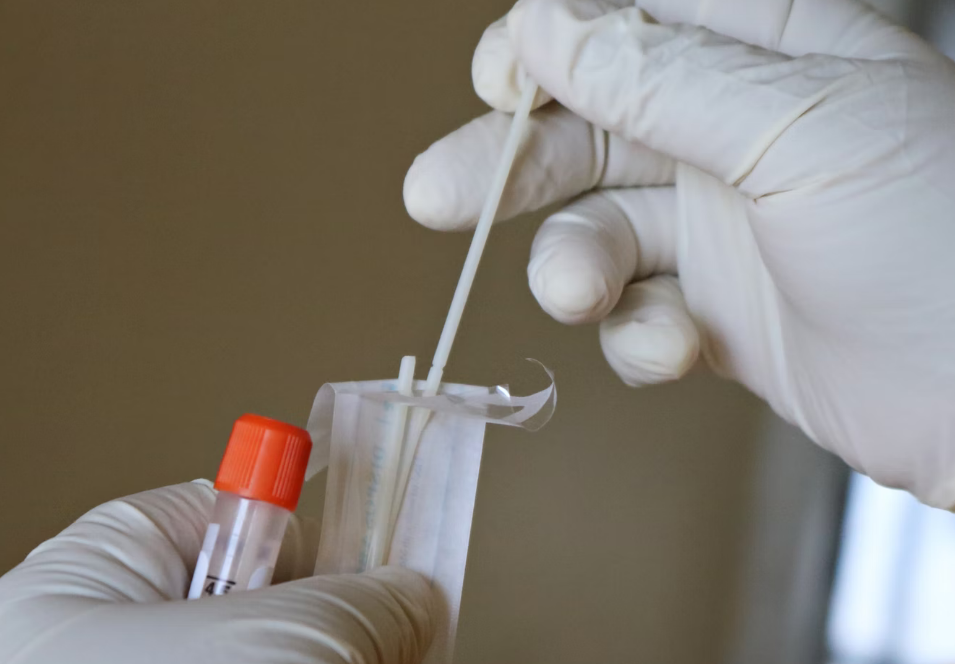
Role of Phlebotomist in the Blood Crisis
Phlebotomists play a crucial role in blood supply for utilization in hospital medical purposes. According to medical authorities, the role of these medical care providers is crucial in addressing the present blood product crisis.
Educate
Phlebotomists are in the best position to educate the masses and the system about the shortage of blood supply. This can cause a rapid reaction and cease blood consumption in hospitals and other clinical facilities.
The intervention of phlebotomists can also guide surgeons to make better decisions and work towards Patient Blood Management (PBM).
Make Calls
Phlebotomists are expected to lead from the front in the country’s mission to reduce blood waste. Phlebotomists are in a distinct position to make the first call of judgment about blood product use and play a bigger role in developing proactive policies to ensure a long-term sustainable blood supply.
Encourage Donors
Phlebotomists can encourage eligible donors to contribute and solve the national blood crisis. They can engage as many people in the system through awareness and convince them about the benefits of donating blood for the donor’s body and solving the drought.
The phlebotomists scheduled for in-home phlebotomy can interact with the homeowners and guide them about the blood donation processes and its many advantages. Phlebotomists are important pieces of the medical system and hence, can play their part to address and solve the blood shortages in the country.
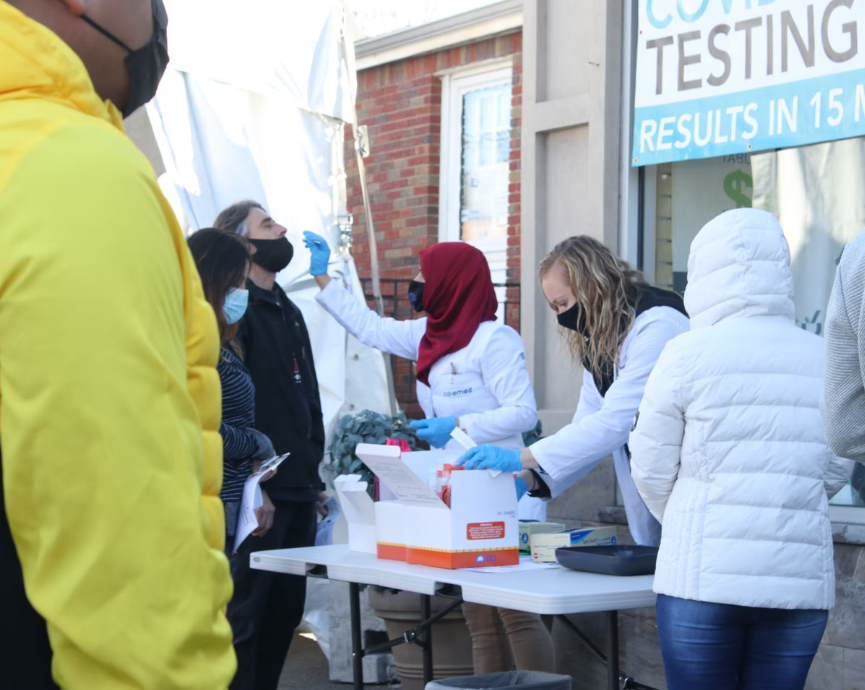
Get Home Blood Test Services in Maryland
Phlebotomy on Wheels is a renowned mobile testing lab in MD that offers in home phlebotomy services VA for the people of Maryland and Virginia at affordable prices.
We have experienced phlebotomists on board that work collectively in our mission to ensure quality and convenient medical care supply for everyone at all times.
We have a range of blood testing services and 24/7 urine testing services. We also provide hygienic stool and saliva kits for safe and rapid testing.
Get in touch with us today and learn more about our Affordable phlebotomy service VA.


